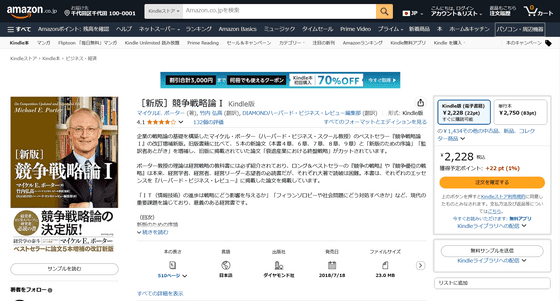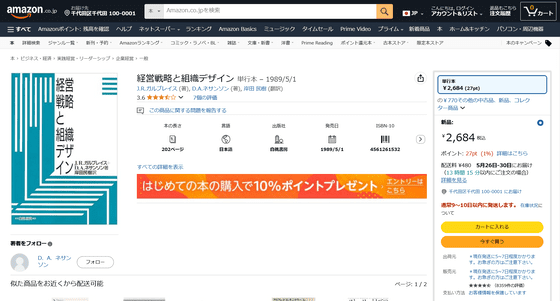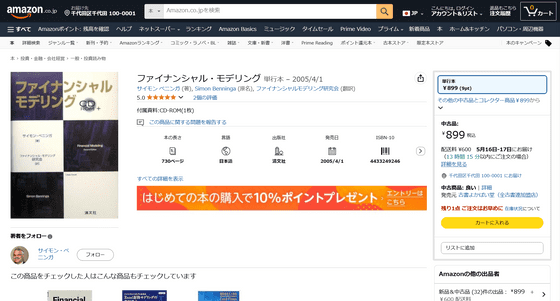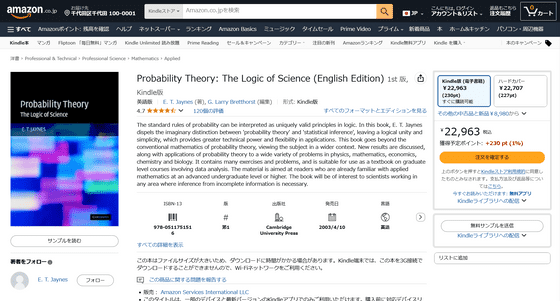Peter Thiel's 'Zero to One' business books are a waste of time

Among best-selling business books and self-help books, some contain deep insights that can lead to realizations, while others generalize successful experiences that were merely due to luck. A newsletter has been released that contains concise comments on seven popular business books that are loved all over the world and have also been translated into Japanese.
Reading 'Business' Books Is A Waste Of Time - by Jack
Jack , author of the newsletter The Orthagonist and analyst at financial services firm Virtu Financial, says most popular business books are emotionally charged rather than intellectually rigorous. They have only become popular because they prioritize readability and entertainment over accuracy, he argues, replacing simplified stories with general advice, rare successes with universal strategies, and complex market trends with motivational slogans.
In a newsletter article titled 'Business Books Are a Waste of Time,' Jack cited seven popular business books as examples and summarized the 'misleading points' and 'counterexamples' contained in them.
◆1. Peter Thiel: Zero to One: What Can You Create from Nothing?
Zero to One: What Can You Create from Zero? | Peter Thiel, Blake Masters, Tetsuo Takimoto, Miwa Seki | Books | Mail Order | Amazon

Main Idea
Build something entirely new. Avoid competition. Monopoly is better.
Partially correct
Monopolies make more profits.
Misleading points
Thiel advocates the idea that great companies are born from a single insight, but in reality, most companies
Thiel oversimplifies market dynamics and ignores the role of strategic partnerships and collaborative ecosystems.
The part that Thiel left out was that he was already in the top 1% of the population before he founded PayPal. As a Stanford graduate, former Credit Suisse employee, and founder of a small capital firm, he was no maverick with nothing to lose. So his advice is filtered through a privileged starting point and structural advantage.
Missing Points
There is no discussion of the actual mechanics of a startup: team dynamics, fundraising timelines, cost structures, customer acquisition, etc.
Counterexample
Home-sharing platform Airbnb achieved success not by inventing a new concept, but by finding a better way to do things within existing frameworks.
◆2. Work only four hours a week by Timothy Ferriss.
Work only 4 hours a week. | Timothy Ferris, Jun Tanaka | Books | Online Shopping | Amazon

Main Idea
Automate and outsource your work to live more freely.
Partially correct
Delegation and automation can increase efficiency.
Misleading points
There is a generalization from exceptional cases, universalizing digital arbitrage schemes and outsourcing as a path to freedom.
- He advocates the idea of 'mini-retirement,' a deliberate long break from work in the middle of one's career to refresh oneself, but this ignores the focus needed to build something useful.
Missing Points
There is no discussion of long-term brand building, legal issues in outsourcing, strategic depth, etc.
Counterexample
Stripe, the payments service, was built with deep technical focus and years of sustained effort, not a four-hour-a-week shortcut.
◆3. Simon Sinek: Start with WHY! What makes inspirational leaders different

Main Idea
A strong sense of purpose drives business success.
Partially correct
A clear mission can help unify your team or attract specific customers.
Misleading points
Sinek overstates the importance of purpose. In reality, customers buy based on practicality and price, not ideology.
- Many companies set their mission after they have achieved
Missing Points
There is no analysis of market fit, product iterations, or pricing strategy.
Counterexample
Amazon grew to scale through operational excellence, not brand mission.
◆4. Lean Startup by Eric Ries
Lean Startup | Eric Ries, Joichi Ito (Director of MIT Media Lab), Koji Iguchi | Books | Online Shopping | Amazon

Main Idea
A cycle of build, measure, learn allows startups to adapt and reduce waste.
Partially correct
Rapid iteration and feedback loops help.
Misleading points
The ' minimum viable product' (MVP) concept is often used to justify lower quality products.
- Metrics data is often treated as an 'accurate guide' without proper interpretation or strategy being considered.
What's missing
There is a lack of attention to capital planning, go-to-market execution, and founder psychology under uncertainty.
Counterexample
Apple has eschewed the MVP idea, choosing instead to launch highly polished products.
◆5. Jim Collins: The Big Picture Book 2 - The Law of Leaping Forward
Visionary Company 2 - The Law of Leaping Forward | Jim Collins, Yoichi Yamaoka | Books | Mail Order | Amazon

Main Idea
Successful companies have one thing in common: leadership traits and a disciplined culture.
Partially correct
Strong leadership and discipline helps.
Misleading points
The book suffers from
-Correlation is presented as causation.
Missing Points
There is no substantive discussion of technology cycles, financial structures, or economic conditions.
Counterexample
The book's praise of Fannie Mae contributed to exacerbating the 2008 financial crisis.
◆6. Ben Horowitz: HARD THINGS: How to tackle difficult problems and challenges without answers
Amazon.co.jp: HARD THINGS: How to face difficult problems and difficulties with no answers eBook: Ben Horowitz, Kaihiko Namekawa, Nobuo Takahashi, Takao Ozawa (Preface): Kindle Store

Main Idea
Startups are painful and there are no easy answers.
Partially correct
Starting a company can often be chaotic and stressful.
Misleading points
-The book transforms specific experiences into general lessons without providing a clear framework.
- Important decisions (layoffs, funding, etc.) are discussed narratively rather than analytically.
Missing Points
There is no systematic analysis of capital efficiency, equity dilution, or risk-weighting decisions.
Counterexample
Many companies have succeeded by avoiding avoidable disruptions: e-commerce company Shopify, for example, has scaled steadily through careful planning.
◆7. Mark Manson: The 'decision' that solves everything: 'Five roadmaps to avoid wasting your precious life'

Jack's review of this one book calls it a 'quintessential
Main Idea
Not worrying too much about unimportant things leads to a better life.
Partially correct
Obsessing over irrelevant issues wastes time and energy.
Misleading points
This book wraps fatalism in sharp language and sells it as practical wisdom.
- Manson's brand strategy relies on carefully crafting an image of 'not caring,' which is itself a contradiction.
What's missing
It does not provide frameworks, strategies, or useful tools for people building complex systems and organizations.
Counterexample
Every successful founder has a keen attention to detail and a deep sense of compassion.

Summary
Jack said that he read business books for two years before jumping into the startup world and trying to put into practice the advice written in the business books, but it was no use. He summarized the lessons he learned from his own experience and the 'really substantial books' described below in the following five points.
1. Focus on reality, not stories
Real markets do not follow neat storylines; many success stories are retroactive rationalizations of random walks.
2. Strategies are dynamic and situational
There is no universal strategy and the right one will depend on timing, funding and team capabilities.
3. Operational knowledge is important
Concepts ignored in most popular business books like
4. Small, smart decisions matter
Breakthroughs are rare, and perseverance and persistence lead to victory.
5. Mastery trumps motivation
Learn about accounting, incentive design, and probability before chasing feel-good mantras.
◆ 4 books with real content
Amazon.co.jp: [New Edition] Competitive Strategy I eBook: Michael E. Porter, Hirotaka Takeuchi, DIAMOND Harvard Business Review Editorial Department: Kindle Store



Below is
Amazon | Probability Theory: The Logic of Science (English Edition) [Kindle edition] by Jaynes, ET, Bretthorst, G. Larry | Applied | Kindle Store

On the other hand, some have criticized this article, saying that 'just because it excludes academic content and focuses on ease of understanding doesn't mean it's not useful.' For example, YouTuber Joseph Jude wrote in a Hacker News thread that featured this article and in a blog post , 'There are academic books and business books. Academic books are written for peers with an emphasis on accuracy. Business books, on the other hand, are written to be easy to read and approachable. Just as a spoonful of sugar makes medicine easier to take, business books also come with stories and case studies. So while they may often feel thin on the content, that doesn't mean they should be taken lightly.'
in Note, Posted by log1l_ks